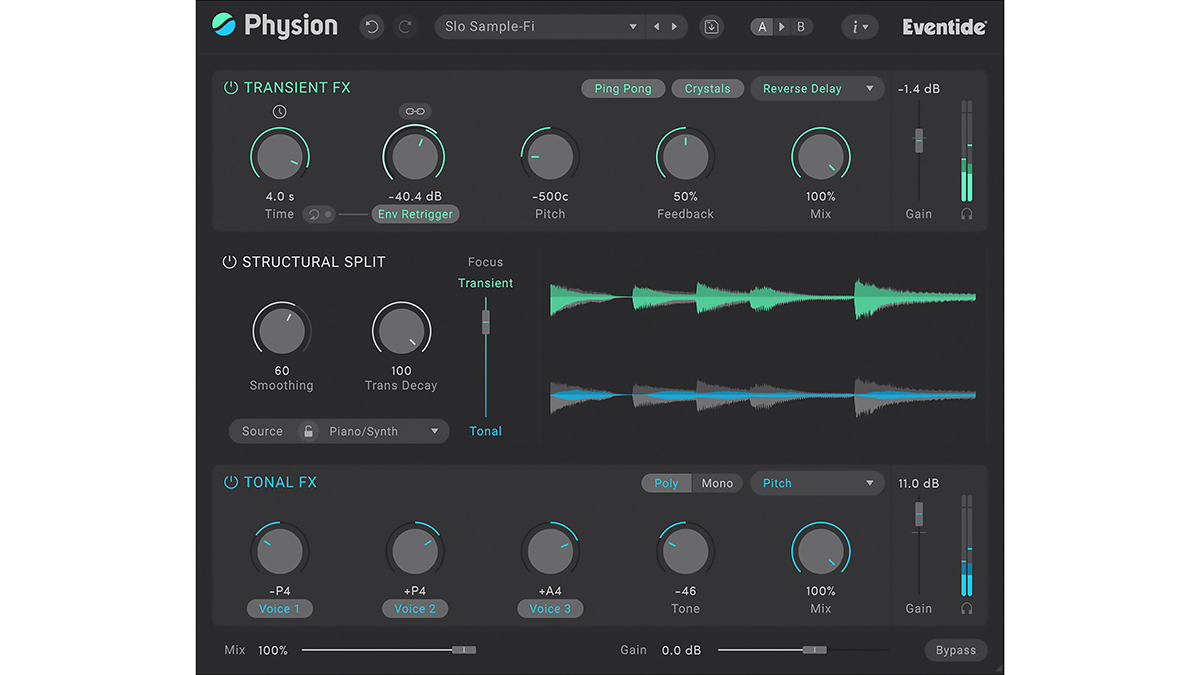Eventide’s Physion Mk II plugin promises “a new dimension of multi-FX”
Tonal and transient processor gets a polyphonic pitch shifter
Eventide is back with Physion Mk II, an updated version of its multi-effects plugin. Once again, this uses the company’s Structural Split technology, which enables you to break a sound up into its constituent transient and tonal parts, process them, then bring them back together.
The headline new feature is a Polyphonic Pitch Shifting effect, which is based on another Eventide technology, SIFT (Spectral Instantaneous Frequency Tracking). There’s also a new reverse delay with gating, ping-pong and crystal modes, a sidechain input for the dynamics processors, and filters lifted from Physion’s sister plugin, SplitEQ. The GUI is now resizable, too.
You get 500 categorised presets, which range from the subtle to the extreme in terms of their effect. A/B comparison and Undo/Redo features should come in handy when you’re experimenting with settings.
Physion Mk II is available now for PC and Mac in VST/AU/AAX formats for the introductory price of $99 (regular price $179). Existing users and SplitEQ owners will qualify for a discount, and there’s also a 30-day demo.
Find out more on the Eventide website.

Get the MusicRadar Newsletter
Want all the hottest music and gear news, reviews, deals, features and more, direct to your inbox? Sign up here.



I’m the Deputy Editor of MusicRadar, having worked on the site since its launch in 2007. I previously spent eight years working on our sister magazine, Computer Music. I’ve been playing the piano, gigging in bands and failing to finish tracks at home for more than 30 years, 24 of which I’ve also spent writing about music and the ever-changing technology used to make it.
“From a music production perspective, I really like a lot of what Equinox is capable of – it’s a shame it's priced for the post-production market”: iZotope Equinox review
"This is the amp that defined what electric guitar sounds like": Universal Audio releases its UAFX Woodrow '55 pedal as a plugin, putting an "American classic" in your DAW









